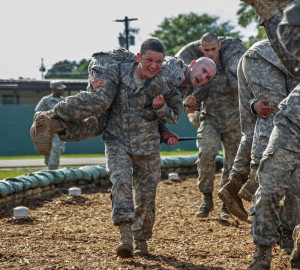At the risk of being labeled an unreconstructed male chauvinist — and you can add “pig” to it if you wish — I want to offer a view or two about a story that’s been giving me heartburn when I first heard about it.
Two women, both West Point graduates, have completed the U.S. Army’s highly intense Ranger training. Capt. Kristen Griest and 1st Lt. Shaye Haver went through precisely the same training regimen as their male colleagues.
They deserve high praise and congratulations for completing the course and for earning the admiration of their fellow soldiers, some of whom said the two women rendered critical assistance on the training field.
One of the women is a military police officer; the other flies Apache helicopters. They know the risks associated with the hazardous military duty.
But I keep wondering about this question: Is the percentage of dropout rates among women greater or fewer than it is for men because they cannot meet the strenuous physical requirements of becoming a Ranger?
I am thrilled that these two fine soldiers completed the Ranger training successfully. They now are certified as being among the Army’s elite fighters. But they aren’t going to be assigned front-line combat duty — at least not until the Pentagon decides to deploy women to serve in infantry, armor or artillery units.
There’s been plenty of praise for these two women, who demonstrated that they are as physically capable as their male colleagues to serve as Rangers. I join in praising Capt. Griest and Lt. Haver.
Do they represent the norm among all female soldiers who might want to become Rangers, or Green Berets, or Navy SEALs, Marine commandos, or Air Force special forces?
I keep thinking they’re the exception rather than the rule.
That is what makes me hesitate to endorse the idea of sending women into ground combat.
Heck, women already have engaged in combat operations — flying high-performance aircraft or serving in civil affairs units in hostile territory.
Am I out of step? Maybe. I’ll live with it.
